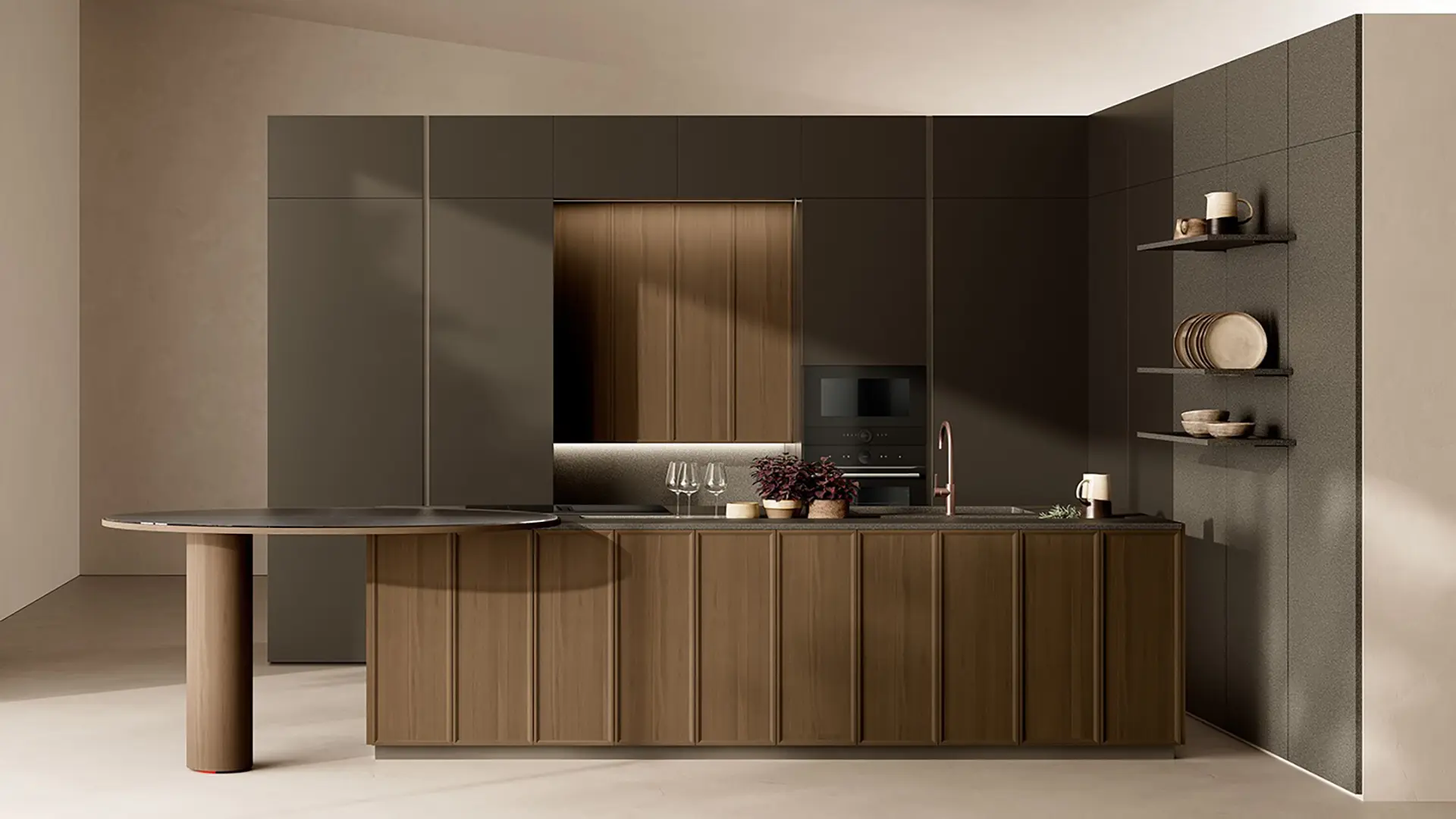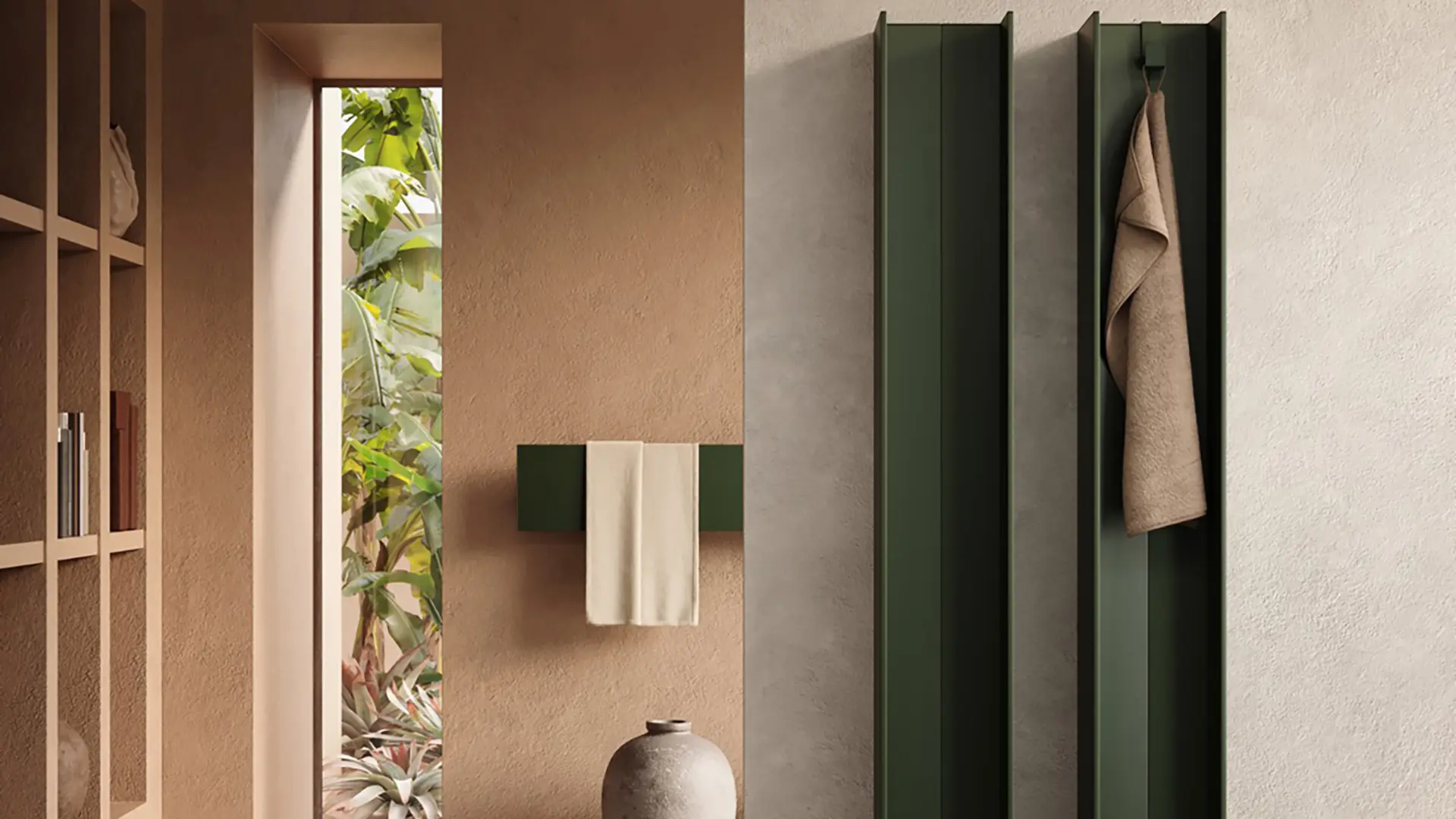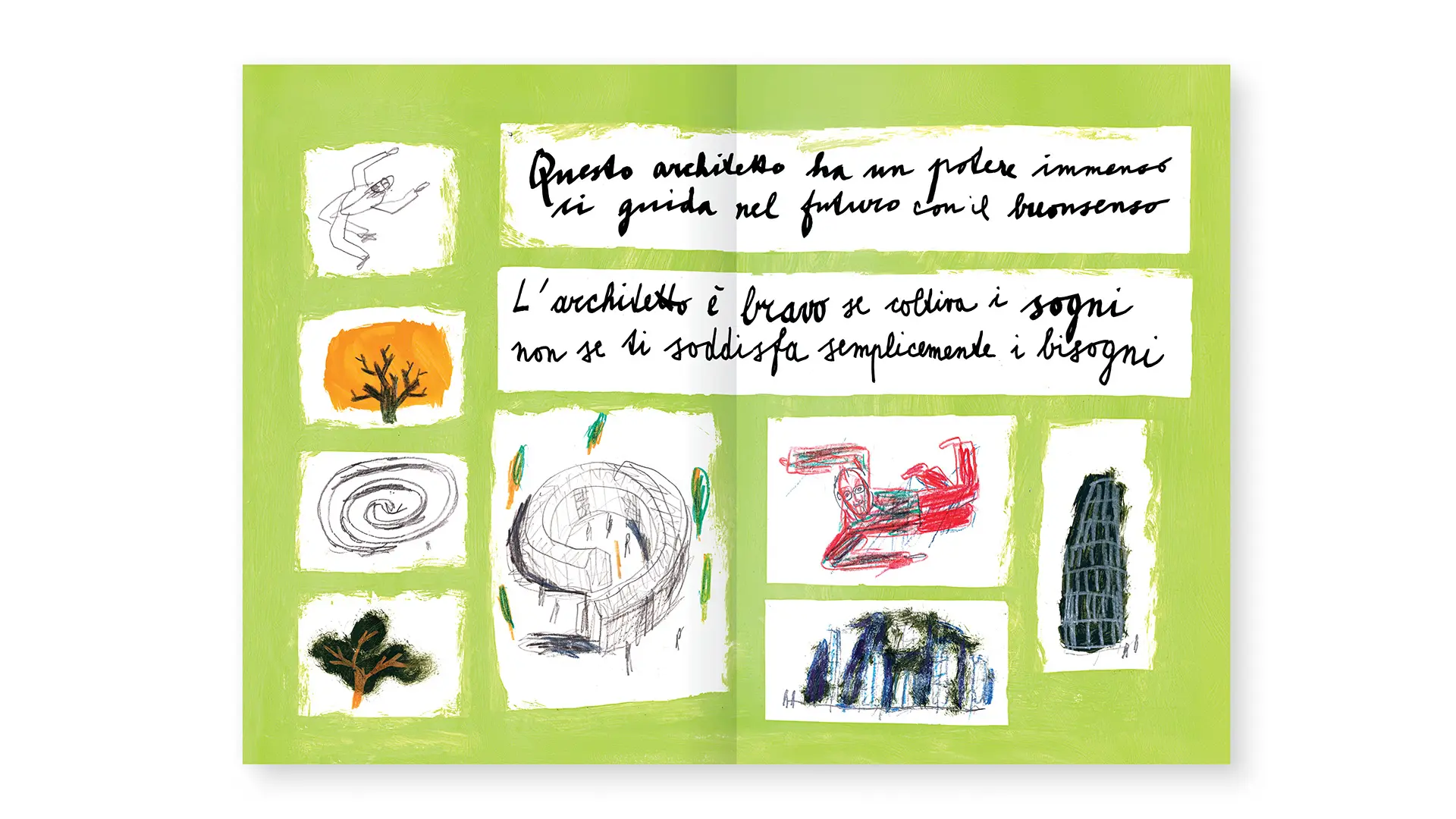Wood transforms the kitchen space with craftsmanship, technology, and continuity with the living area
SaloneSatellite 2025 as told by its protagonists
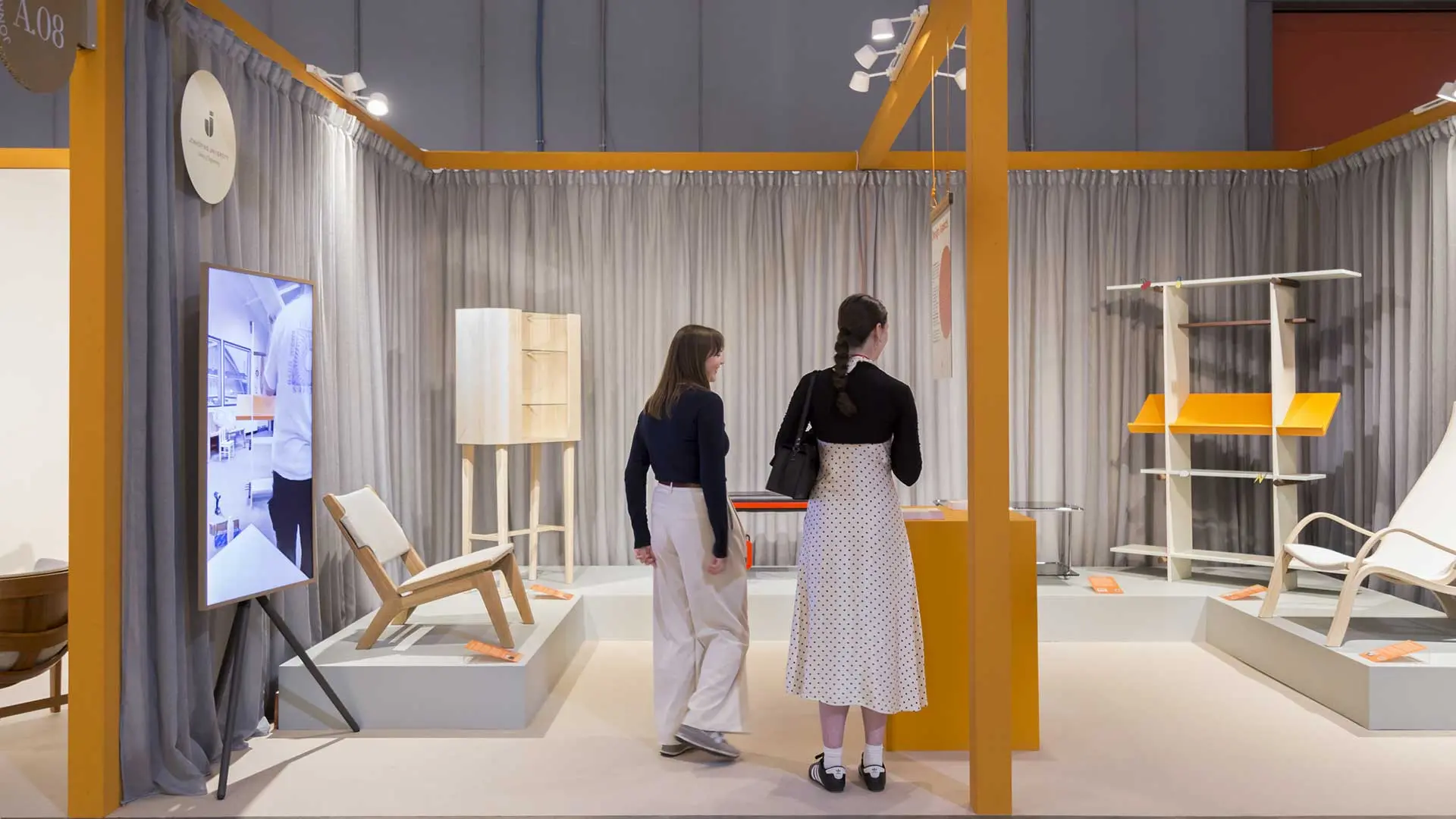
SaloneSatellite 2025 - Ph. Ludovica Mangini
Over to the 2025 SaloneSatellite Award winners: a snapshot of the projects conceived by this year’s emerging talents
Since 1998, SaloneSatellite has been a space for experimentation, research, innovation, and first and foremost, a space in which creativity knows no bounds. Founded and curated by Marva Griffin Wilshire, the event is aimed at designers under 35 and is a fundamental showcase when it comes to proposing ideas and visions to potential partners.
The 26th edition was based around the theme NUOVO ARTIGIANATO: UN MONDO NUOVO//NEW CRAFTSMANSHIP: A NEW WORLD, aimed at bringing tradition and contemporary visions together to inject new life into craft practices in the contemporary world.
The winners of the 14th edition of the SaloneSatellite Award, which celebrates the talent and creativity of emerging designers, with prizes for three of the most deserving designs, interpreting the challenge and creating projects providing an opportunity to reflect on the future of furnishing, with great attention to sustainability issues.
Paola Antonelli, President of the SaloneSatellite Award Jury, had this to say: “Craftsmanship is essential for progress and also crucial in today’s world, powered by Artificial Intelligence and 3D printing. It is not just a way of getting to grips with the material culture of other peoples. Because it is often distilled over the course of centuries, it also embodies ancient wisdom regarding nature and survival, thus offering proven and reliable lessons on sustainability. When materials and technologies are brand new, moreover, the ability to make, by hand, is essential for driving innovation.”
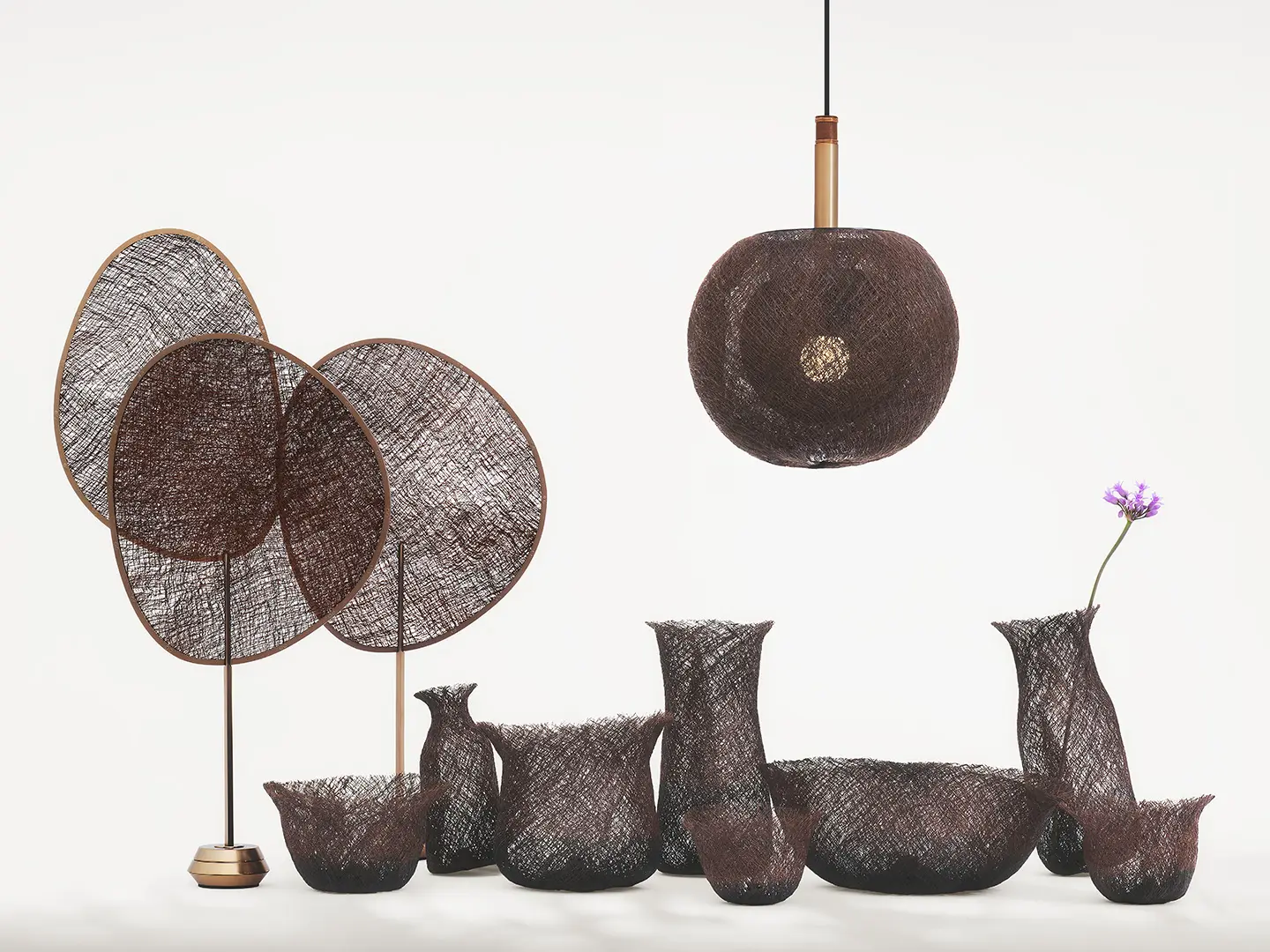
Kazuki Nagasawa
First Prize went to Kazuki Nagasawa of the Japanese firm Super Rat for Utsuwa-Juhi Series, vases and containers that reinterpret Japanese craftsmanship, preserving history and culture. “Being able to take part in a such a significant and special platform was an invaluable experience, and each day was filled with a deep feeling of joy and contentment,” said the designer. “The six days spent with designers from all over the word were packed with meetings, learning and inspiration that I had never encountered before. It was also a chance to reconnect with what being a designer means on a deeper level and to reflect honestly on the thoughts and values I’ve pursued thus far.”
Nagasawa also stressed the centrality of sustainability in design practice. “As times change, I believe that new challenges and problems may emerge from places we might never have previously thought of. To respond to a single problem, designers must seek different answers from different perspectives. I believe that the true essence of design lies in enriching people's awareness and daily lives through all forms of exploration."
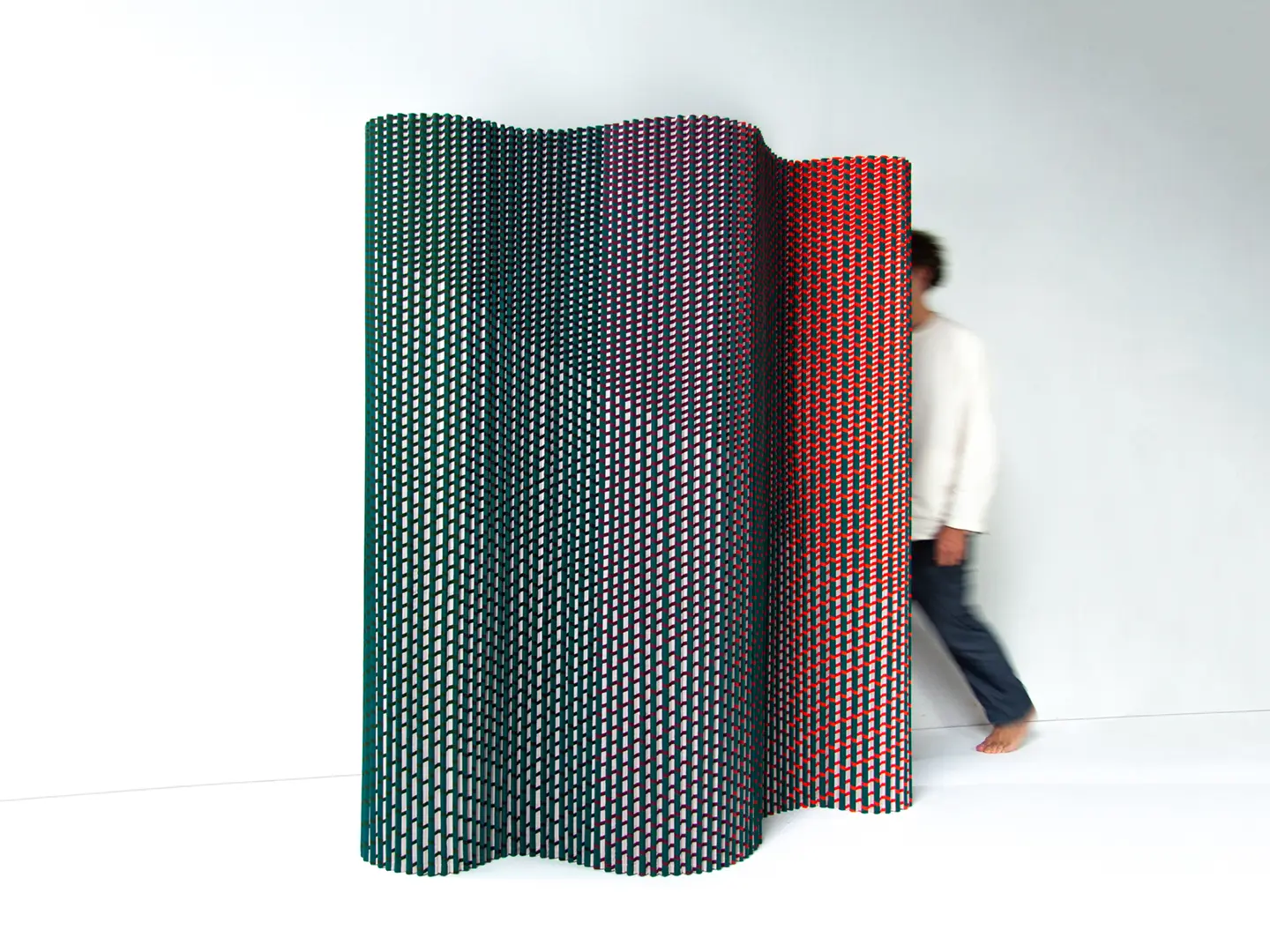
Luis Marie
The Dutch firm Luis Marie took second prize with Plissade, An entirely textile screen, stiffened without binders or adhesives, which reinvents traditional pleating techniques for a self-supporting corrugated partition, opening up new possibilities for home textiles. “Presenting our work in such a respected context created a strong sense of dialogue and momentum. For us it was not just about showcasing products, but also about engaging in conversations around craftsmanship, material exploration, and the future of living spaces. Winning a SaloneSatellite award was an unexpected honor and reinforced our belief in staying true to our process and values.”, said the design duo founded by Fenna van der Klei and Patricio Nusselder.
Speaking of sustainaibility: “We prioritize durable materials, local production, and techniques that respect both the material and the maker. Rather than chase trends, we aim to create objects that feel quietly timeless; pieces to be kept, not discarded. We also deeply value working with artisans whose expertise ensures that quality and care are present in every detail. In that sense, sustainability is as much about cultural and human continuity as it is about ecological responsibility.”

Riccardo Toldo
Third prize was awarded to the Italian Riccardo Toldo for his Fil Rouge lamp: an almost invisible filament lights up when powered from opposing poles. The designer explained: “SaloneSatellite 2025 was a pivotal experience for me. I studied Industrial Design first at the IUAV University in Venice and then did my Masters at the Politecnico di Milano. Exhibiting at SaloneSatellite was something I’d aspired to ever since I was at university, and being able to do so was a significant milestone for me. The space that Marva Griffin continues to take forward with such determination is a huge opportunity for young designer like me, and we should be profoundly grateful for her generous vision. The Salone was a great success for me – being selected as one of the winners of the SaloneSatellite Award gave me even greater visibility and the very real possibility of making contact with a number of companies, which are the beating heart of the Salone del Mobile. I hope to enter into a constructive dialogue with some of them, which will hopefully lead to the development of new lighting products – and more.”
On the subject of sustainability, Toldo stressed the potential danger of emptying the word of all meaning, depriving it of sense: “I believe that a designer’s responsibility doesn’t just stop at choosing recycled or recyclable materials and cycles. These aspects are important but not enough. A project is sustainable when it actually reduces the need for recycling because it has been conceived to last over time. Designing a project that is somehow “disposable,” even when produced with environmentally friendly materials, will still be less sustainable than an object designed to last for years – perhaps with materials that appear less “green” on paper, but which have a much longer lifecycle. I find that this apparently trivial concept is often ignored or glossed over. For me, sustainability is also measured in the quality of the relationship that the object set up with those who use it: if an object is designed to be meaningful, repairable, passable on, then it is also more sustainable, from a number of points of view - environmental, social and cultural. In this sense, I see sustainability not only as a technical issue, but also as an ethical and an aesthetic one. I firmly believe that designing today means asking questions about the future: what is worth producing, how long will what we create last, and what impact it will have over time — not only on the environment, but also on people."
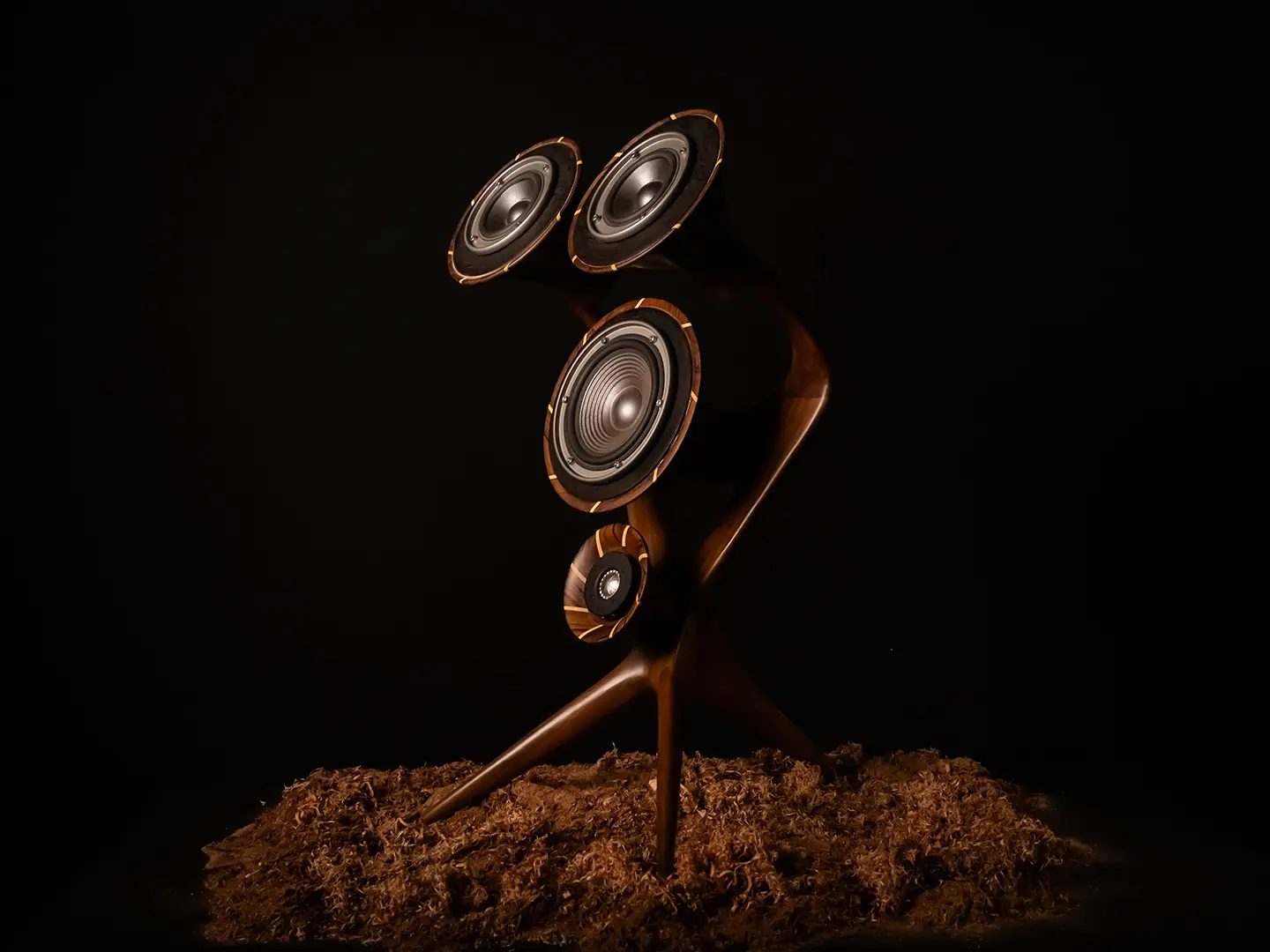
Juan Cortizo
This edition’s Special Mention went to the Venezuelan designer Juan Cortizo for Quibor Project, a loudspeaker embodying a passion for industrial design and commitment to Venezuelan craftsmanship. He told us: "It was my first experience of this prestigious event. Due thanks go to my mentor, Jorge Wahbeh. His trust in me and in my work ethic were fundamental in bringing to life a project that, just a year ago, was just an academic vision with which I graduated from the Design Institute of Caracas. Thanks to his invaluable support, we were able to work together and make the most of the incredible opportunity to present my project, Quibor, at SaloneSatellite. This highly creative space allowed me to meet and engage with great designers and creatives, finding out the current trends in the design world first hand. I was also able to make contact at my stand with key figures who evidenced great interest in my project, which showed me the potential global impact Quibor could have.”


 Exhibitions
Exhibitions




